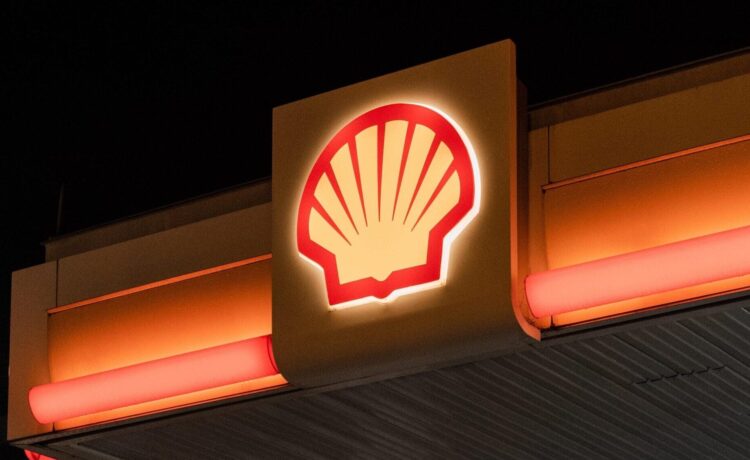Table of Contents
Show more
Show less
Shell plc (stock ticker: SHEL) is one of the world’s largest independent energy companies, operating in more than 70 countries. The company employs 103,000 people worldwide, including a UK workforce of 6,000.
The business specialises in the exploration, production, refining and marketing of oil and natural gas, and the manufacturing and marketing of chemicals.
However, the past success of Shell is no indicator of future performance and anyone thinking about investing should consider researching the company more thoroughly to better understand its potential benefits and risks.
Investing puts your capital at risk, and investors should be prepared to lose some or all of their investment.
How to buy shell (SHEL) shares
Once you’ve satisfied yourself regarding the reasons for buying shares in a particular company, there are several steps to take:
1) Open an account
Whether you’re a seasoned trader or someone new to stock market-based investments, if you want to buy shares in Shell you’ll need to open an account with a broker.
Stockbroking is competitive and services for DIY investors range from online investing platforms to investment trading apps.
Before opening an account, remember it is important to:
- Keep your ultimate financial goals in mind
- Be prepared to ride out stock market ups and downs
- Aim to keep trading costs to a minimum
- Keep in mind that share investing and trading can prompt tax charges.
Before buying any shares, ask yourself these questions:
- Should I take professional advice?
- Am I comfortable with the level of risk?
- What’s my investing budget?
- Can I afford to lose money?
- Do I understand the company in which I’m looking to invest?
- Am I protected if my platform provider/advisor goes out of business?
2) Know where Shell is traded
The ticker symbol for Shell is SHEL and the company is traded on the London Stock Exchange, where the trading hours are 8am till 4.30pm Monday to Friday.
Shell’s financial results are quoted in US dollars, reflecting the currency in which oil is priced and traded on international markets.
Any profit made on shares will be subject to capital gains tax (CGT), unless you hold the shares in an individual savings account (ISA), or self-invested personal pension (SIPP). More on this below.
Tax treatment depends on one’s individual circumstances and may be subject to future change. The content of this article is provided for information purposes only and is not intended to be, nor does it constitute, any form of tax advice.
3) Do your research
To find out more about Shell, visit its investor relations page.
4) Decide your investment strategy
People tend to invest either with a lump sum or via smaller, regular amounts.
The latter method is often referred to as ‘pound cost averaging’, which may help you pay less per share on average over time. Rather than waiting to build a lump sum, it means an investor’s money is put to use straight away.
5) Place an order
Once you’re ready to buy Shell shares, log in to your investing account or trading app. Type in the SHEL ticker along with the number of shares you want to buy or the amount of money you’re looking to invest.
6) Review Shell’s performance
Whether your share portfolio is full of companies or holds only a handful of stocks, we believe it’s vital you review how each component is performing on a regular basis: monthly, quarterly, annually, or whichever frequency is appropriate.
Doing this enables you to review performance and ask if any adjustments to your holdings are required.
Shell stock price performance
The graph below displays the past performance of Shell. Past performance is not a reliable indicator of future results.
1 May 2025: Q1 2025 Results
- Q1 2025 attributable income at $4.8bn, up 415% from $928m in Q4 2024 but down from $7.4bn year-on-year
- Adjusted earnings of $5.6bn, up 52% from $3.6bn in Q4 2024 but down from $7.7bn year-on-year
- Adjusted EBITDA of $15.3bn, up 7% from $14.4bn in Q4 2024 but down from $18.7bn year-on-year
- Total shareholder distributions in Q1 2025 amounted to $5.5bn comprising repurchases of shares of $3.3bn and cash dividends of $2.2bn. Shell has completed $3.5 billion of share buybacks announced in Q4 2024 results announcement. It has announced a share buyback programme of $3.5bn which is expected to be complete by the Q2 2025 results announcement
- Dividends declared for Q1 2025 at $0.3580 per share.
How to sell Shell (SHEL) shares
If you want to sell your holdings, log in to your investing platform, enter the ticker symbol and select the amount that you want to sell.
Note that if you’ve made a substantial profit, you may be liable to pay CGT when you come to sell your holdings, especially if your shares were held outside of a tax-exempt wrapper such as an ISA.
The CGT tax-free allowance for the tax year 2025-26 is £3,000. Find out more about CGT, rates and allowances.
Bear in mind the content of this article is provided for information purposes only and is not intended to be, nor does it constitute, any form of tax advice.
Why consider owning shares?
Before buying shares in any company ask yourself why you’re taking that decision. Does the company have potential prospects with a share price that could go from strength to strength?
Is there takeover talk that could potentially drive up a company’s share price?
Maybe the company you’ve identified is on a recovery mission and its share price is starting to recover from previous lows.
How to invest in Shell via a fund
Investing directly in individual stocks can be an absorbing and, hopefully, profitable experience. It may also qualify you for shareholder perks specific to the company in question.
However, investing directly in individual companies can leave you more vulnerable to stock market volatility as well as unforeseen swings in share prices.
That’s why many financial experts recommend that most people invest in a diversified mix of asset classes and investment funds that hold hundreds, if not thousands, of company shares.
As a major component of the FTSE-100 index, Shell is found in many funds incorporating a bias towards the UK.
Frequently Asked Questions
Does Shell pay a dividend?
Yes. Shell has a record of paying quarterly dividends, but past dividend payment record is no guarantee of future dividend payments.
Can I buy Shell shares with a debit card?
Yes, in the sense that you’d need to add funds using a form of method of payment. One option is using an appointed card to an existing online investing service or trading app before making the share trade from there.
What does it cost to trade Shell shares?
This will vary depending on the investment service/platform that an investor is using to trade.
Broadly speaking, there are three main types of fees. First is a share trading fee that investors are charged by a platform each time they buy or sell shares.
Note that some platforms charge no fee for this activity, while others may charge a flat fee of typically between £6 and £12.
Second comes the platform fee which is typically levied as an annual fee charged for holding shares on a particular investing platform. Again, some providers impose no fee, others charge a flat fee, and some services charge a percentage, typically 0.25% to 0.45% per annum of the underlying portfolio.
If you buy or sell shares denominated in a foreign currency, nearly all of the investing platforms charge a foreign exchange fee. Again, this will vary among providers, but tends to sit in a range from 0.5% to 1.5% per transaction.
Investments in a currency other than sterling are exposed to currency exchange risk. Currency exchange rates are constantly changing which may affect the value of the investment in sterling terms.
You could lose money in sterling even if the stock price rises in the currency of origin. Stocks listed on overseas exchanges may be subject to additional dealing and exchange rate charges, and may have other tax implications, and may not provide the same, or any, regulatory protection as in the UK.





